
In 2008, Al Wistert was elected to the Philadelphia Sports Hall of Fame. Even though he was 87 years old, the former Eagles great chose to make the long trip from his home in Grant's Pass, Oregon to Philadelphia for the awards dinner.
While Wistert was in town, the Eagles invited him to the NovaCare Complex. Andy Reid walked Wistert around the building, including a trip down the hall to where Wistert's retired No. 70 jersey hung alongside those worn by other Eagles legends such as Chuck Bednarik, Steve Van Buren and Reggie White. The coach called out to several linemen who were walking by.
"I want you to meet someone," Reid said.
Jon Runyan, Tra Thomas, Jamaal Jackson and Todd Herremans came over to meet the gray-haired gentleman. Reid said, "This is Al Wistert." He pointed to the jersey on the wall and said, "The Eagles retired his number. He was that good." Reid nudged Wistert and said, "Tell 'em how many times you were All-Pro."
Wistert smiled and said, "Eight times in nine seasons."
The look that came over the players' faces was priceless. It was a look that said, "Whoa, this guy was something special."
And, indeed, he was.
I thought of that scene on Saturday when I heard the news of Wistert's passing at the age of 95. He will be mourned by anyone who ever met him or understood his place in Eagles history. He was the captain of the 1948 and '49 world championship teams and a member of the Philadelphia Eagles Hall of Fame. He was a delightful man with a vice-like handshake and a great sense of humor.
I interviewed Wistert many times about those championship seasons and teammates like Van Buren, Bednarik and end Pete Pihos, all members of the Pro Football Hall of Fame. He especially enjoyed talking about Greasy Neale, the coach he initially despised and grew to love.
"My first impression of Greasy was he was the most uncouth man I ever met," Wistert said. "He cussed and swore something awful. Foul language bothered me back then. I wasn't used to it. I was raised by my mother and three sisters. I never heard that kind of language around the house. I never heard it playing ball in high school or college. My coaches didn't believe in it.
An eight-time All-Pro and member of the Philadelphia Eagles Hall of Fame, former tackle Al Wistert passed away Saturday at the age of 95. Here are 10 photos from his amazing career ...

Al Wistert was inducted into the Philadelphia Eagles Hall of Fame with QB Randall Cunningham in 2009

Did you know that Al Wistert was the first Eagle to ever have his jersey number retired? His No. 70 was retired in 1952
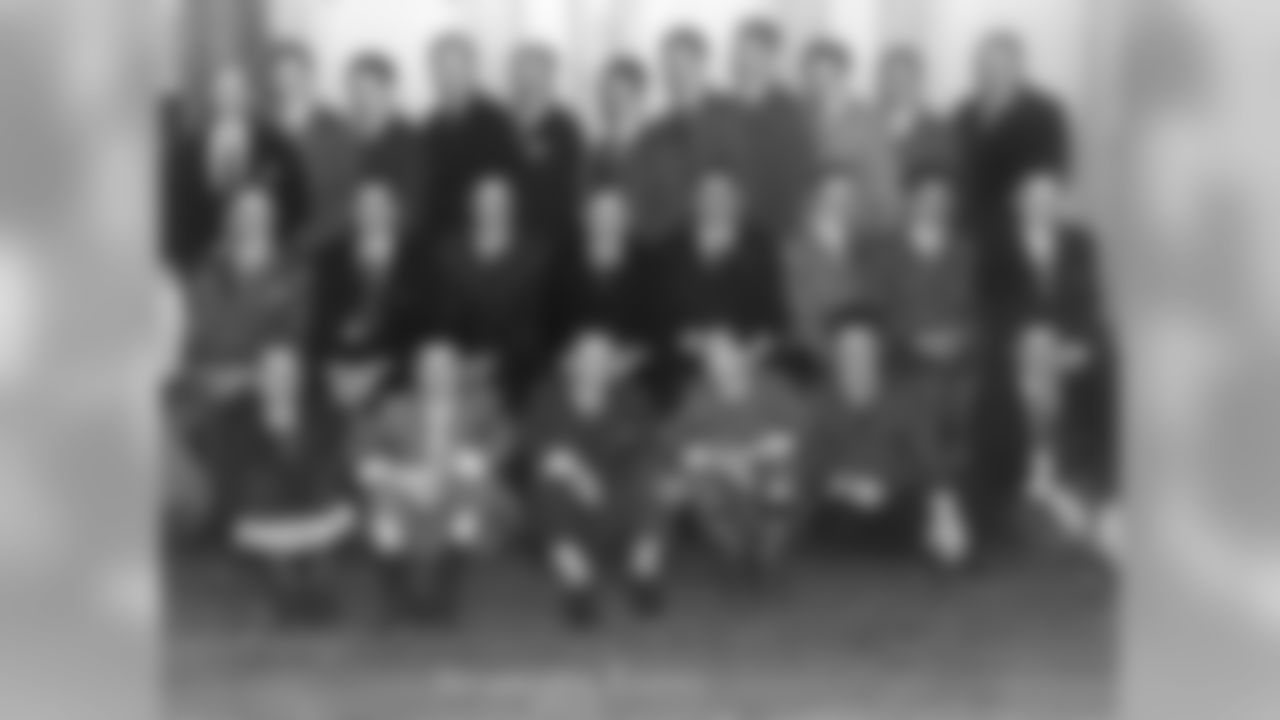
Al Wistert's rookie season was 1943 when the Eagles and the Steelers combined to form the Steagles due to World War II
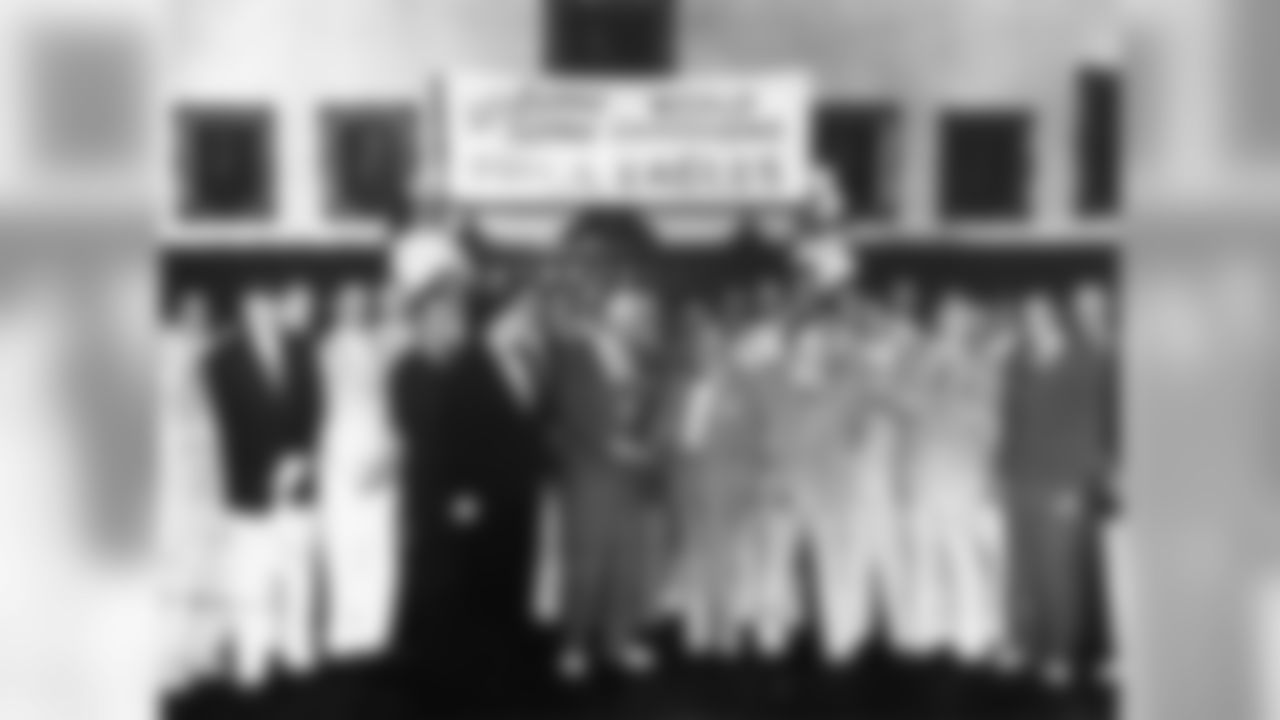
Al Wistert was a member of the Eagles' first two World Championship teams in 1948 and '49. This celebration was following the second crown
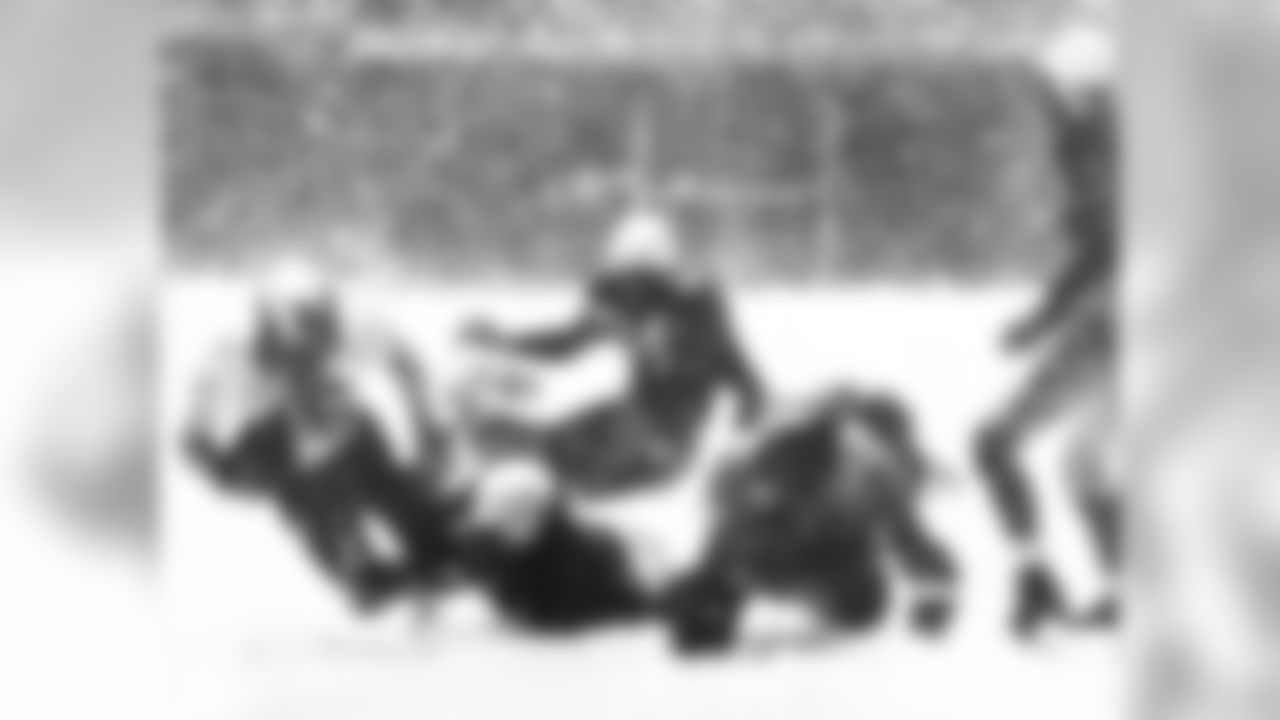
Al Wistert was one of the linemen who paved the way for Steve Van Buren's touchdown run in the 1948 NFL Championship, the only points scored in the game
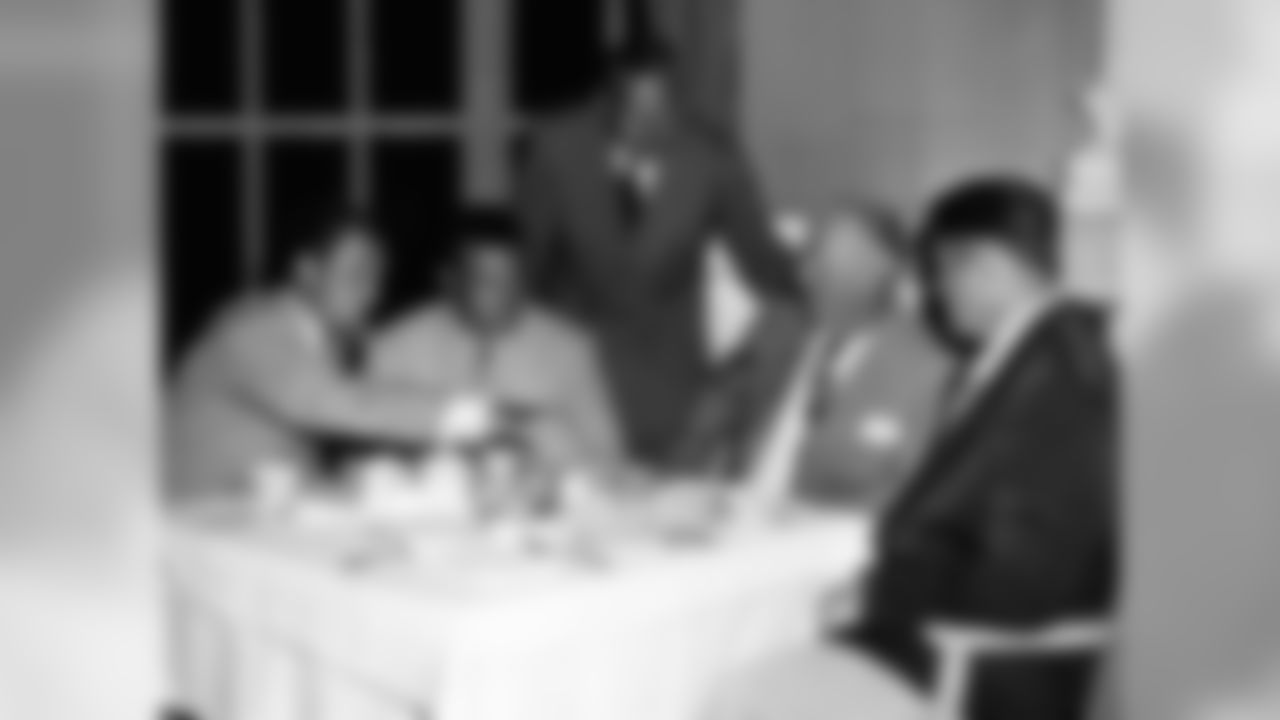
Al Wistert, standing, with QB Tommy Thompson, RB Steve Van Buren, Coach Greasy Neale and C Alex Wojciechowicz meet in Chicago in 1949 ahead of an exhibition game
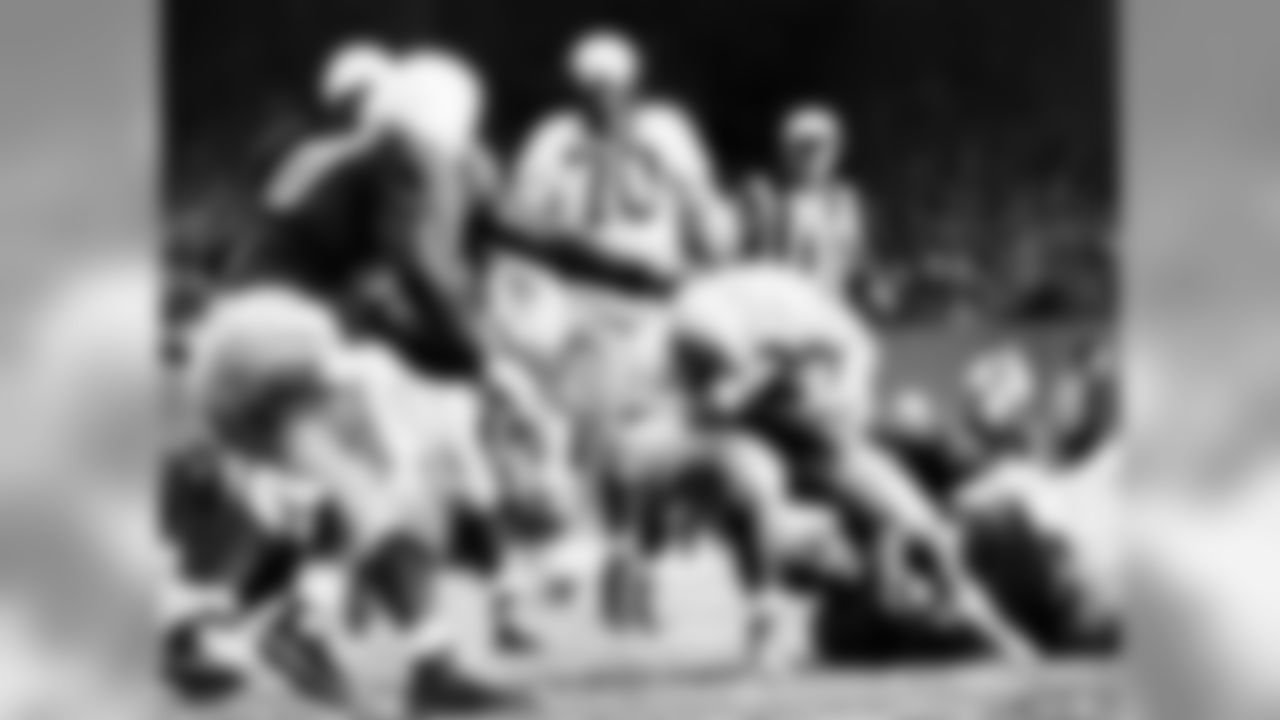
Al Wistert (No. 70) was an All-Pro in eight of his nine NFL seasons, all with the Eagles

The Eagles never had a .500 record prior to Wistert's arrival in Philadelphia in 1943. They were .500 or better in eight of his nine seasons

"It's hard for me to believe that he's not in the Pro Football Hall of Fame." - Chairman and CEO Jeffrey Lurie on Al Wistert
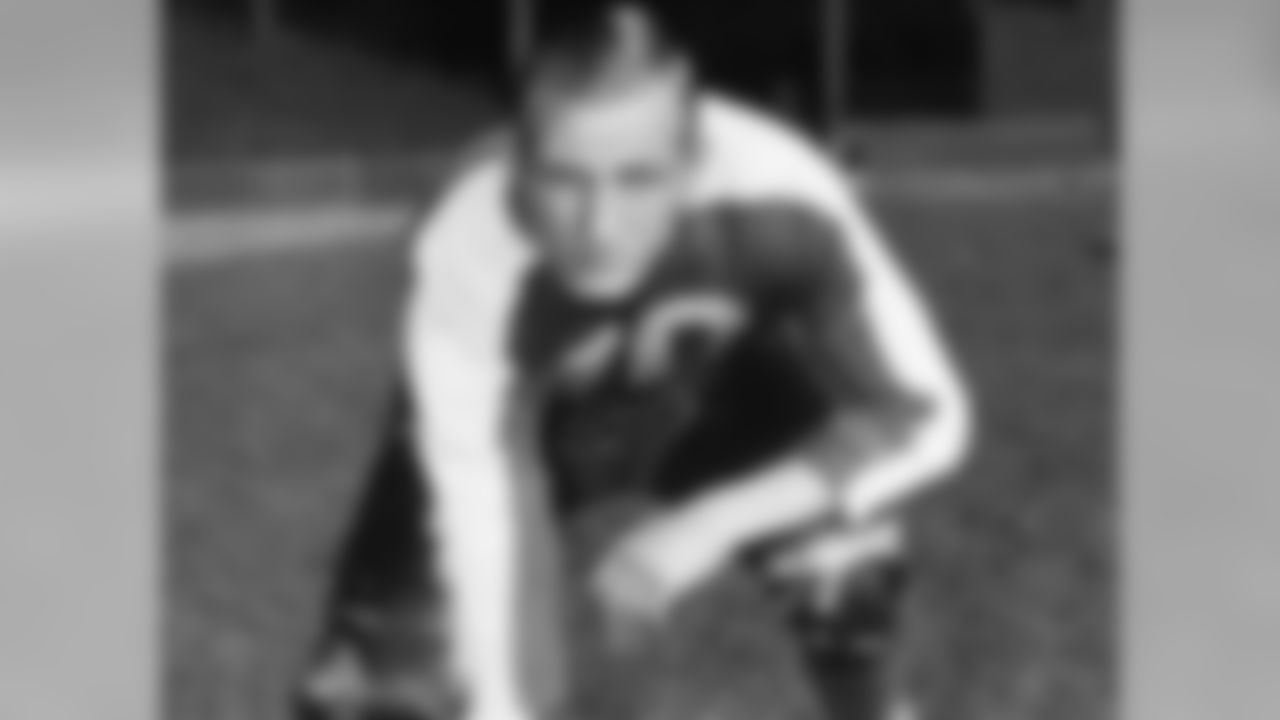
Prior to his arrival in Philadelphia, Al Wistert was an All-America at Michigan. He was inducted into the College Football Hall of Fame in 1968
"At Michigan, I was coached by Fritz Crisler who played his college ball under Amos Alonzo Stagg. Stagg once studied to be a preacher so he never swore. Neither did Fritz. But then I joined the Eagles and there was Greasy calling us every name in the book. It bothered me so much it hurt my play.
"One day he asked me what was wrong," Wistert recalled. "He said, 'I know you're better than this.' I said, 'I can't play for you. You don't know how to handle men.' We didn't speak for the rest of the year."
I asked Wistert if Neale changed his ways. He laughed.
"Are you kidding? Greasy wasn't going to change," Wistert said. "But after I was around him awhile I realized the language didn't mean anything. The way he grew up, working in a steel mill when he was a boy, he was around a lot of roughnecks and it rubbed off on him. But he really was a gentle soul who cared for his players."
In his role as captain, Wistert was closer to Neale than anyone else on the team. Wistert often had dinner at Neale's house and they would talk for hours. Wistert lost his father at an early age - his father was a Chicago policeman who was killed in the line of duty - and Neale never had any children of his own so they formed a deeper bond than just player and coach. Even after football, they stayed in touch exchanging letters which Wistert saved.
"Greasy loved our team," Wistert said. "He would always say, 'You fellows made my life.'"
Wistert was a 6-1, 215-pound tackle who played both ways, offense and defense, 60 minutes a game. He was a fifth-round draft choice of the Eagles in 1943 and played nine seasons, all in Philadelphia. He retired following the 1951 season at the relatively young age of 31. He coached high school football in South Jersey for a while then retired to the West Coast.
Wistert was an All-America at Michigan (his No. 11 jersey is retired there as well) where he earned the nickname "The Big Ox." He wasn't that big, even in that era, but he was a dominant force on both sides of the ball. When I was at NFL Films, I produced a piece on the Eagles title teams so I went through all the footage in our vault. One of the things that stood out was the play of Wistert, in particular his run blocking. His technique was flawless. He was quick off the ball and did a superb job opening holes for Van Buren, who won four rushing titles in a span of five seasons.
"Al was the glue that kept our team together," said Bill Mackrides, a quarterback on the championship teams. "His blocking was the mainstay of our offensive line. On many occasions, he bailed out the other linemen with last-second adjustments. Don't let his smaller-than-today stature fool you. Given the opportunity, Al could play in any era."
To a man, Wistert's teammates could not understand why he was not voted into the Pro Football Hall of Fame. Even neutral observers, such as historian Bob Carroll, agree Wistert should have a place alongside Neale, Van Buren, Bednarik, Pihos and Alex Wojciechowicz in Canton, Ohio. In his 1988 book, The Hidden Game of Pro Football, Carroll wrote that of all the players who were not yet in the Hall of Fame, Wistert was the most deserving. Carroll noted: "He was the top lineman ... on one of the NFL's great dynasties, the post-war Eagles."
Yet it never happened.
Wistert never complained. If the subject came up, he said, "I'll just wait my turn." He always hoped it would happen and perhaps someday it will. The Hall of Fame's Seniors Committee could put Wistert on the ballot one of these years and the Board of Selectors could vote him in. He surely belongs.
Rather than dwell on that, Wistert preferred to reflect on the pride of playing with a great Eagles team and the thrill of bringing a championship to Philadelphia, a city he loved. He enjoyed talking about eating at Bookbinder's restaurant where the meals were free whenever the Eagles posted a shutout. If you check the records, you will see in the 1947-49 seasons, the Eagles had 12 shutouts, including the two championship game wins over the Chicago Cardinals (7-0) and Los Angeles Rams (14-0).
"You don't think that was motivation?" Wistert said. "At halftime, if we had a shutout working, guys would be talking about those lobster tails. Back in those days, we weren't making much money so a free dinner really meant something."
An award-winning writer and producer, Ray Didinger was inducted into the Pro Football Hall of Fame in 1995. He has also won six Emmy Awards for his work as a writer and producer at NFL Films. The five-time Pennsylvania Sportswriter of the Year is a writer and analyst for Comcast SportsNet. Didinger will provide Eagles fans a unique historical perspective on the team throughout the year for PhiladelphiaEagles.com. You can read all of his Eagles History columns here. He is also the author of The New Eagles Encyclopedia.























